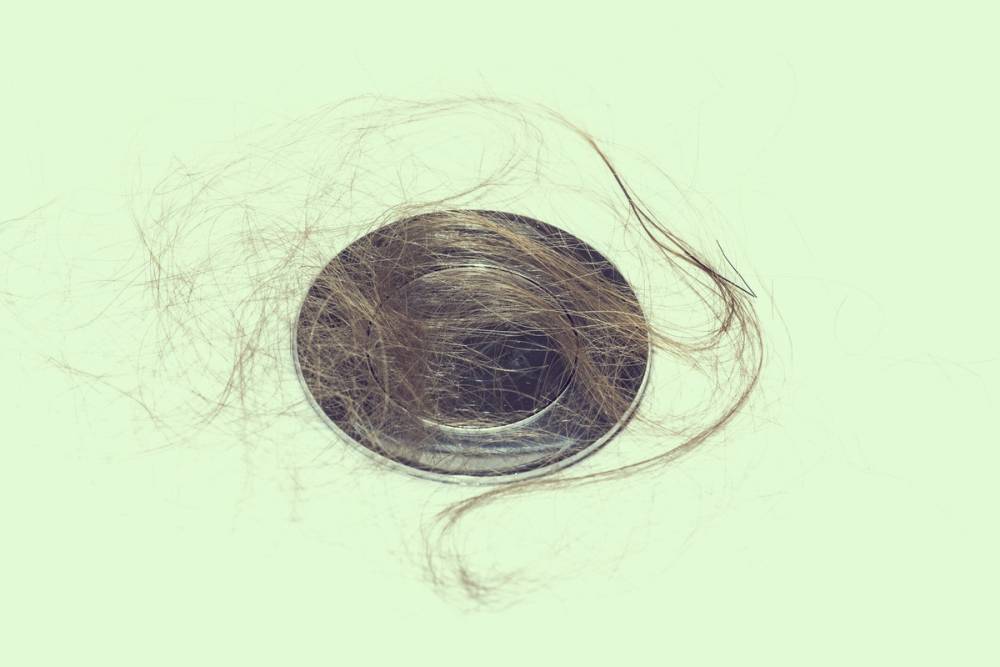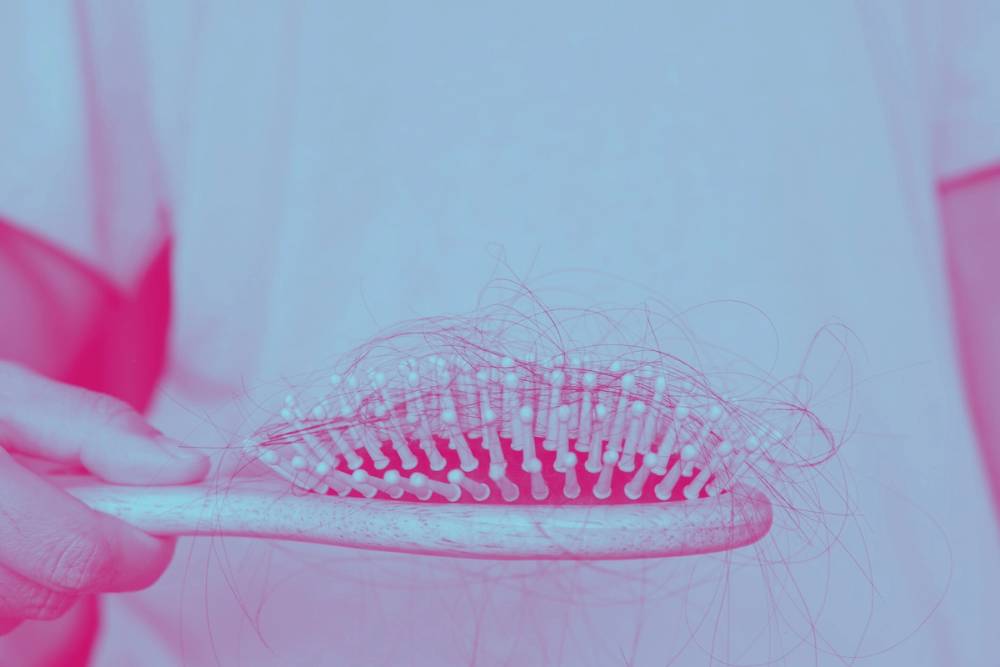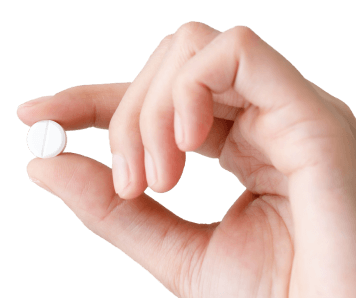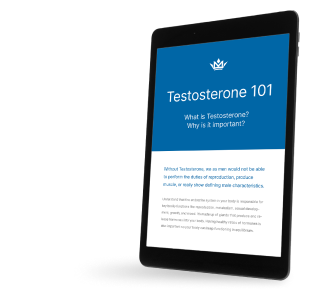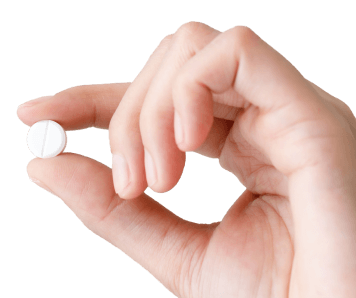Key takeaways
- Dutasteride, a 5-alpha-reductase inhibitor, blocks DHT production to reduce hair loss. This is an off-label use of this medication.
- Dutasteride can be taken orally or topically.
- Oral dutasteride stops the conversion of DHT in the body before it reaches the follicles.
- Topical dutasteride stops the DHT conversion directly in the follicles and may have fewer side effects.
Though hair loss becomes more common with age, younger men experience it too. In fact, one in four men experience hair loss by age 30. Researchers aren’t entirely sure what causes hair loss, though most agree that genetics and hormones are contributing factors. When you have too much of a hormone called dihydrotestosterone (DHT), your hair follicles may shrink, leading to thinner and weaker hair, and your follicles also may take longer to grow new hairs, contributing to early hair loss.
Medications like finasteride and dutasteride, which you can take both topically or orally, help to reduce hair loss and encourage new growth by blocking DHT. This article will dive into what dutasteride is, how oral dutasteride compares to topical dutasteride, and what you should know about the side effects of each.
What is dutasteride?
Dutasteride is a prescription medication that is prescribed to treat a prostate condition called benign prostatic hyperplasia, but it’s also sometimes prescribed as an off-label treatment for hair loss. Dutasteride belongs to a class of drugs known as 5-alpha-reductase inhibitors. These drugs block the action of the enzyme 5-alpha-reductase, which is responsible for the conversion of testosterone to DHT in the body. Remember, DHT is the hormone we mentioned earlier that plays a big role in pattern hair loss.
How does dutasteride for hair loss work?
When DHT is present in high amounts, it can shrink your hair follicles and shorten the hair growth cycle, resulting in hair loss. Dutasteride, like other 5-alpha-reductase inhibitors, blocks DHT production to reduce hair loss. Dutasteride is actually known as a dual inhibitor because it blocks two different isozymes of 5alpha-reductase, making it extremely potent and resulting in near-complete suppression of DHT, helping to reduce hair loss in men with male pattern hair loss.
In one study that compared the efficacy of dutasteride versus a placebo in 17 pairs of identical twins with male pattern baldness (with one of each twin receiving 0.5 mg of dutasteride each day and the other receiving the placebo), the individuals who used dutasteride experienced significantly improved hair growth compared to those who took the placebo.
How long does dutasteride take to work for hair loss?
The effectiveness of dutasteride varies from one person to another and may also depend on whether you use topical or oral dutasteride. The above study on identical twins showed successful results after a year of treatment, and in another study, patients taking oral dutasteride saw a significant increase in their average amount of hair after 24 weeks.
There’s less research on topical dutasteride, but this study from 2009 found that injecting dutasteride directly into the scalp improved hair count in just 12 weeks.
Comparing topical and oral dutasteride
Topical and oral dutasteride are both effective in treating pattern hair loss, but there are some key differences between how the two formulations work. Conversion of testosterone to DHT happens locally (in the hair follicles) and systemically (throughout the body); taking topical dutasteride is thought to stop the DHT conversion locally, while oral dutasteride stops the conversion systemically. Many experts think that using topical dutasteride helps to avoid the extensive side effects associated with oral dutasteride because it avoids systemic exposure.
Keep reading to find out which formula works better and what you can expect when taking these medications.
Using topical dutasteride to treat hair loss
In one small-scale pilot study using a solution that combines dutasteride, finasteride, and minoxidil and other components, subjects saw significant hair growth after 90 days.
Another study compared the effects of microneedling alone versus a treatment that combined dutasteride and microneedling. People who used topical dutasteride and microneedling experienced a slight elevation in hair density and more improvement than the microneedling-only group after 24 weeks of treatment.
Side effects of topical dutasteride
There is not enough research into topical dutasteride on its own to assess the full scope of side effects. Some reported side effects of topical dutasteride used in conjunction with microneedling are listed below, but it’s unclear whether these side effects should be attributed to dutasteride or the microneedling portion of treatment.
- Headaches
- Sensitivity
- Irritation
- Itching
Using oral dutasteride for hair loss
Oral dutasteride isn’t FDA approved to treat hair loss, but it’s still prescribed off-label for this purpose. Most people are prescribed one 0.5 mg capsule per day.. Most of the studies comparing dutasteride to other hair loss medications, such as finasteride, employ the oral form of dutasteride. For this reason, there is a good deal of research on its efficacy and safety despite its off-label status.
In one study, dutasteride increased hair growth in a dose-dependent manner. Oral dutasteride, dosed at 0.5 mg and 2.5 mg, significantly improved hair counts after 24 weeks as compared to 5 mg finasteride.
In a more recent study from India, dutasteride was shown to be more effective than finasteride and both medications had similar safety profiles. The increase in total hair count representing new growth was significantly higher in the dutasteride group and so was the decrease in thin hair count, suggesting a reversal of hair follicle shrinkage.
And in one 2020 systematic review comparing intralesional and oral dutasteride, oral dutasteride was found to be more effective in increasing average hair count. Both oral dutasteride and intralesional dutasteride were more effective than the placebo.
Oral dutasteride side effects
Oral dutasteride is proven to be more effective than finasteride and topical dutasteride in suppressing DHT and combatting hair loss, it carries a higher risk of side effects when compared to the topical solution.
Some side effects, which the Mayo Clinic says are “less common,” include:
- Abnormal ejaculation
- Decreased libido
- Impotence
- Erectile dysfunction
There is also an increased risk of developing high-grade prostate cancer, which is also seen with other 5-alpha-reductase inhibitors like finasteride.
Overall, if you want a mild preventative solution to hair loss, topical dutasteride is a good option and may provide the results you’re looking for. If you desire more prominent results and don’t respond well to the topical route, you may want to consider oral dutasteride.
Disclaimer: The contents of this article, including, but not limited to, text, graphics, images, and other information, is for information purposes only and does not constitute medical advice. The information contained herein is not a substitute for and should never be relied upon for professional medical advice. The content is not meant to be complete or exhaustive or to be applicable to any specific individual's medical condition. You should consult a licensed healthcare professional before starting any health protocol and seek the advice of your physician or other medical professional if you have questions or concerns about a medical condition. Always talk to your doctor about the risks and benefits of any treatment. Never disregard or delay seeking professional medical advice or treatment because of something you have read on this site. Maximus does not recommend, endorse, or make any representation about the efficacy, appropriateness, or suitability of any specific test, products, procedures, treatments, services, opinions, healthcare providers or other information contained herein. Maximus is not responsible for, nor will they bear any liability for, the content provided herein or any actions or outcomes resulting from or related to its use.

